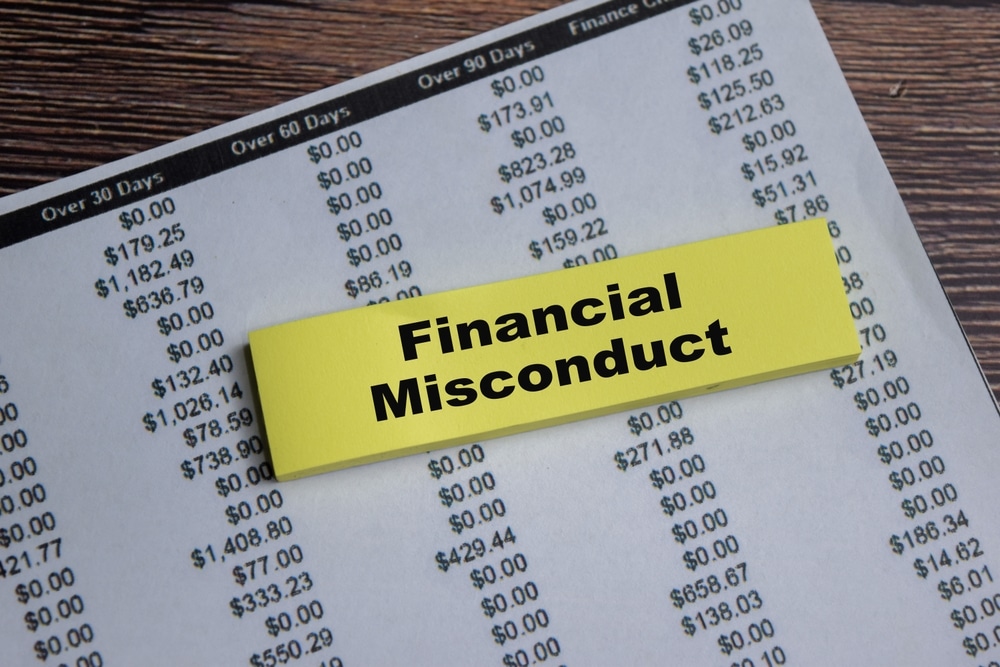
When spouses divorce in Illinois, one of the most difficult issues is dividing marital property fairly. Illinois is an equitable distribution state, which means assets are divided fairly, though not always equally. Courts look at several factors under the Illinois Marriage and Dissolution of Marriage Act (750 ILCS 5/503). One factor that often becomes central in high-conflict divorces is financial misconduct.
Financial misconduct can take many forms. A spouse may hide assets, run up credit card debt for personal use, give gifts to someone outside the marriage, or waste money on gambling. When this behavior occurs, the court may adjust the property division to account for the unfair use of marital funds. As attorneys, we have seen how judges take these issues seriously, especially when one spouse tries to disadvantage the other financially before or during the divorce process.
Understanding how Illinois law treats financial misconduct is critical to protecting your rights and ensuring you are not penalized for your spouse’s actions.
Under 750 ILCS 5/503(d)(2), courts may consider “the dissipation by each party of the marital or non-marital property” when dividing assets. Dissipation refers to the use of marital funds for a purpose unrelated to the marriage, particularly at a time when the marriage is breaking down.
Examples of financial misconduct include:
If one spouse can show that dissipation occurred, the judge has the power to compensate the other spouse through the division of property. This may mean awarding a larger share of marital assets to the innocent spouse. For example, if one spouse secretly spent $30,000 of marital funds on personal expenses, the court may reduce that spouse’s share of the property division by the same amount.
Illinois courts also require that claims of dissipation be specific. The spouse raising the claim must provide evidence of dates, amounts, and how the funds were spent. General claims are usually not enough. This makes detailed financial records and discovery during the divorce process extremely important.
When we represent clients in divorces involving financial misconduct, we take a strategic approach:
By being proactive, we can strengthen your case and make sure the property division reflects fairness.
Dissipation occurs when one spouse uses marital property for purposes unrelated to the marriage while the relationship is breaking down. Courts look closely at timing because spending that occurred years before problems began is less likely to be considered dissipation.
You will need to present records such as bank statements, receipts, or testimony that shows how marital funds were used. The burden is on the spouse making the accusation, which is why working with an attorney who understands discovery and financial tracing is crucial.
Generally, dissipation affects property division, not spousal maintenance. However, if misconduct reduces available marital assets, it can indirectly influence the overall financial picture that the court considers when deciding maintenance.
Yes. Hiding or transferring assets to avoid sharing them in divorce is a form of financial misconduct. Courts can penalize the spouse who attempts this by awarding a larger share of the marital estate to the other spouse.
If the debt was incurred for personal or reckless reasons unrelated to the marriage, you may be able to argue that it constitutes dissipation. Courts will examine whether the debt benefited the marriage or was solely for one spouse’s personal use.
Illinois law requires specificity, and generally, dissipation claims must focus on spending that occurred after the marriage began to break down. Courts often look at whether the expenditures happened during the final stages of the marriage.
If both parties have dissipated assets, the court may offset the claims against each other. Ultimately, the judge will still divide property equitably, but neither spouse may gain a significant advantage if misconduct occurred on both sides.
At Gordon & Perlut, LLC, we know how damaging financial misconduct can be in a divorce. We are aggressive in uncovering hidden assets, exposing wasteful spending, and protecting your financial future.
If you believe your spouse has engaged in financial misconduct, contact our Chicago divorce lawyers at our Chicago office at 312-360-0250 or our Skokie office at 847-329-0101 to arrange a free consultation. We represent clients throughout Illinois and fight to ensure that property division is fair and just.